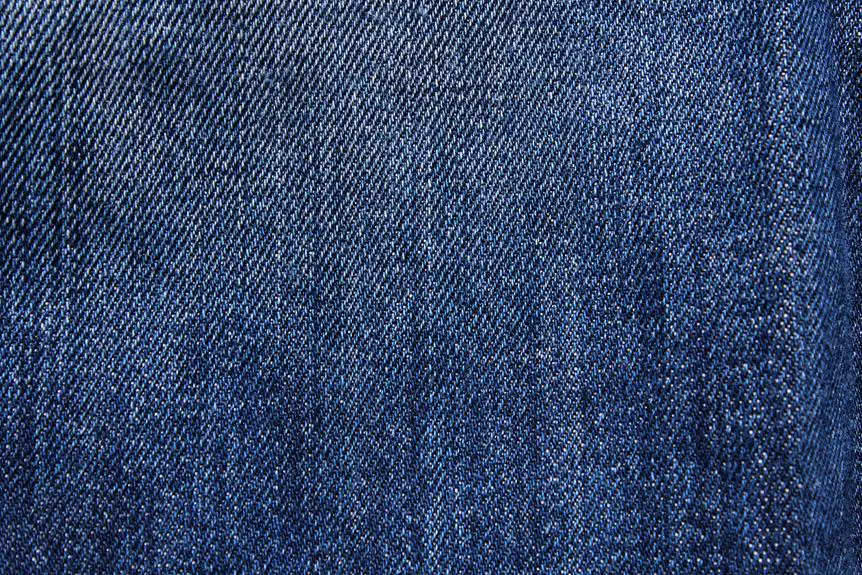Hey there, denim enthusiast!
Choosing the right fabric weight for your denim is like finding the perfect balance in a dance – it's all about comfort, style, and durability. Understanding the nuances of denim fabric weights can elevate your mastery of this classic material.
Whether you're drawn to the light, airy feel of lightweight denim, the versatile nature of medium weight denim, or the rugged durability of heavyweight denim, there's a weight that's just right for your unique style.
In this guide, we'll delve into the intricacies of denim fabric weights, helping you make an informed decision that aligns perfectly with your denim preferences. Let's explore the world of denim together!
Key Takeaways
- Material composition, weave type, finishing treatments, thread count, and stretch content all affect fabric weight and durability.
- Tightly woven denim with higher thread count is generally stronger and more durable.
- Lighter denim fabric weights provide more comfort, flexibility, breathability, and stretchiness.
- Lightweight denim is breathable, versatile, dries faster, and is travel-friendly.
Understanding Denim Fabric Weights
Understanding denim fabric weights can greatly impact how your jeans fit and feel. When it comes to denim fabric, weight considerations play a crucial role in determining the overall look and comfort of your jeans. The fabric selection determines whether your denim will be lightweight and breathable or heavy and structured. Fashion trends also influence denim fabric weights, with different seasons and styles calling for varying weights of denim.
The weight of denim fabric is measured in ounces per square yard, and it typically ranges from 4 to 15 ounces. Lighter weight denim, around 4 to 8 ounces, is ideal for warmer weather and provides a more relaxed, comfortable feel. On the other hand, heavier weight denim, typically 10 ounces and above, offers durability and a more structured look, making it suitable for cooler temperatures and a more polished appearance.
When choosing the right denim fabric weight, consider the climate, your personal style, and the intended use of the jeans. Understanding these factors will help you make informed decisions when selecting denim for your wardrobe, ensuring that your jeans not only look stylish but also feel comfortable and appropriate for the occasion.
Factors Affecting Fabric Weight
When it comes to the weight of denim fabric, several factors play a key role in determining the right fit for you.
Material and durability are crucial elements to consider, as they impact the longevity and resilience of your denim.
Comfort and flexibility also come into play, influencing how the fabric feels and moves with your body.
Material and Durability
Choosing the right denim fabric weight for you depends on the material and durability of the fabric. The material durability and fabric strength play a crucial role in determining the suitability of the denim for your needs. Here are some factors to consider:
- Material Composition: The type of fibers used in the denim fabric can greatly impact its durability. Look for fabrics that contain a higher percentage of durable fibers such as cotton or polyester.
- Weave Type: The weave pattern of the fabric can affect its strength and durability. Opt for tightly woven denim for increased durability.
- Finishing Treatments: Certain treatments like stone washing or distressing can weaken the fabric, so consider the impact of these treatments on the fabric's durability.
- Thread Count: A higher thread count generally indicates a stronger and more durable fabric.
- Stretch Content: Denim with added stretch may sacrifice some durability for comfort, so consider your priorities when choosing the fabric weight.
Consider these factors when assessing the material and durability of denim fabric to ensure it meets your needs.
Comfort and Flexibility
You'll frequently find that lighter denim fabric weights provide more comfort and flexibility for everyday wear.
The comfort of denim fabric is influenced by its weight, with lighter weights offering increased breathability and ease of movement. Lighter denim is often softer and more pliable, allowing for a greater range of motion and enhanced comfort throughout the day.
Additionally, lighter denim tends to have more stretchiness, which can further contribute to the overall comfort and flexibility of the fabric. This stretchiness enables the denim to move with your body, providing a more comfortable and unrestricted feel.
When choosing denim fabric weight, considering these factors can help you achieve the level of comfort and flexibility that best suits your lifestyle and preferences.
Lightweight Denim: Is It for You
If you're someone who values comfort and breathability in your denim, lightweight denim may be the perfect fit for you. It offers a more relaxed and comfortable feel compared to heavier denim, making it ideal for warmer weather.
Styling lightweight denim is also versatile, allowing you to create effortless and laid-back looks for any occasion.
Lightweight Denim Benefits
When considering lightweight denim, it's important to understand its unique benefits and how it can complement your personal style.
Lightweight denim offers several advantages, such as:
- Breathability: Lightweight denim is perfect for summer fashion, keeping you cool and comfortable in warm weather.
- Flexibility: It provides ease of movement, making it ideal for active individuals who don't want movement restrictions.
- Versatility: Lightweight denim can be easily dressed up or down, allowing for various styling options.
- Quick Drying: In case of any spills or getting caught in the rain, lightweight denim dries faster than heavier fabrics.
- Travel-Friendly: Its lightweight nature makes it a great choice for travel, as it's easy to pack and won't weigh you down.
Lightweight denim truly offers a blend of style and functionality, making it a valuable addition to your wardrobe.
Styling Lightweight Denim?
Looking to style lightweight denim? Lightweight denim is a versatile fabric, perfect for summer fashion and casual wear. When styling lightweight denim, it's important to keep the overall look relaxed and effortless. Pairing it with a simple t-shirt or tank top creates a laid-back vibe, while adding a stylish belt can elevate the ensemble. To add depth, consider incorporating a 2 column and 5 row table in markdown format to showcase different styling options for lightweight denim:
| Occasion | Top |
|---|---|
| Weekend Brunch | White button-up shirt |
| Beach Outing | Striped off-shoulder top |
| Casual Friday | Chambray blouse |
| Date Night | Off-the-shoulder blouse |
| Music Festival | Graphic tee |
Styling lightweight denim is all about embracing its relaxed nature and creating effortless, chic looks for various occasions.
Medium Weight Denim: Pros and Cons
When choosing denim fabric, you should consider the pros and cons of medium weight denim to determine if it's right for you. Medium weight denim offers a balance between comfort and durability, making it a popular choice for many. Here are some pros and cons to help you decide:
- Pros
- Versatile: Medium weight denim is versatile and can be used to create various styles, from jeans to jackets.
- Comfortable: It provides a good balance between thickness and comfort, making it suitable for year-round wear.
- Durable: Medium weight denim is sturdy and can withstand regular wear and tear.
- Fades well: This type of denim often develops attractive fades over time, adding character to your garments.
- Suitable for layering: It's an excellent choice for layering in cooler temperatures without feeling too bulky.
- Cons
- Takes time to break in: Medium weight denim may require some time to soften and mold to your body.
- Limited breathability: It may not be as breathable as lightweight denim, which can be a downside in hot climates.
Considering these factors will help you determine if medium weight denim is the right choice for your next denim garment.
Heavyweight Denim: Who Should Wear It
If seeking a denim fabric that offers maximum durability and a rugged aesthetic, heavy weight denim may be the ideal choice for you. Its substantial construction and robust nature make it suitable for those who prioritize longevity and a classic denim look. Heavyweight denim is perfect for individuals who value a sturdy, long-lasting fabric that can withstand the rigors of daily wear and tear. It's also a great option for those who appreciate the timeless appeal of denim with a thicker, more substantial feel.
When it comes to body types, heavyweight denim can be flattering for various shapes and sizes. The sturdy fabric provides excellent structure and support, making it a good choice for those with curvier figures or anyone looking to create a more structured silhouette. Styling heavy denim can be versatile; it works well for casual, rugged looks but can also be dressed up with the right pieces. Layering with a well-fitted top and accessorizing with a belt can help balance the substantial weight of the denim, creating a polished and put-together ensemble. Below is a table outlining who can best rock heavyweight denim and some styling tips to consider:
| Body Type | Suitability | Styling Tips |
|---|---|---|
| Curvier Figures | Flattering | Pair with a fitted top and belt |
| All Body Types | Structured Look | Layer with a well-fitted top |
Finding the Right Fabric Weight for Your Style
Once you understand your personal style and preferences, selecting the right fabric weight for your denim becomes easier. Choosing the right denim weight is crucial in ensuring your comfort and style. Here are some tips for finding the perfect fabric weight for your fashion preferences:
- Consider Your Lifestyle: If you have an active lifestyle, a mid-weight denim may be more suitable for its durability and flexibility. On the other hand, if you prefer a more structured look, a heavier weight denim might be the right choice.
- Think About the Seasons: Lighter weight denim is perfect for warmer weather, while heavier weight denim provides warmth and insulation during colder months.
- Evaluate Your Silhouette: The fabric weight can significantly impact the way denim drapes on your body. If you prefer a more relaxed fit, a heavier weight denim could be ideal. For a sleeker, more tailored look, lighter weight denim might be better.
- Experiment with Different Weights: Don't be afraid to try on denim of various weights to see how they complement your style and body shape.
- Seek Quality: Regardless of the weight you choose, prioritize high-quality denim to ensure longevity and lasting style.
Understanding these factors will help you select the perfect denim weight to complement your personal style and fashion preferences.
Comfort Vs. Durability in Denim Fabric
To achieve the ideal balance between comfort and durability in denim fabric, consider the specific demands of your daily activities and seek a denim weight that aligns with those requirements.
When it comes to comfort versus durability in denim, it's important to understand that the fabric weight plays a crucial role. Lighter weight denim tends to be more comfortable and flexible, making it a great choice for everyday wear and fashion-forward looks. On the other hand, heavier weight denim offers enhanced durability, making it suitable for rugged use and long-term wear. However, the trade-off for durability is often a sacrifice in comfort.
As fashion trends continue to evolve, denim enthusiasts are now presented with a wide range of options that cater to both comfort and durability. Advanced fabric technologies have also contributed to the development of denim fabrics that offer the best of both worlds.
Ultimately, finding the right balance between comfort and durability in denim fabric involves understanding your personal needs and preferences, as well as staying updated on the latest trends and advancements in denim manufacturing.
Tips for Choosing the Perfect Fabric Weight
Wondering how to choose the perfect fabric weight for your denim? When it comes to choosing the right fabric weight for your denim, there are several important considerations to keep in mind. Here are some tips to help you make the best decision:
- Purpose: Consider the purpose of the denim garment. Are you looking for jeans for everyday wear, or a heavier weight for durable workwear?
- Climate: Take into account the climate of your location. Lighter weights are more suitable for warmer climates, while heavier weights provide better insulation for colder weather.
- Comfort: Pay attention to the comfort factor. Lighter weights are often more comfortable and easier to move in, while heavier weights offer a sturdier feel.
- Style: Think about the style you want to achieve. Different fabric weights can create varying looks, so it's essential to choose a weight that aligns with your desired aesthetic.
- Durability: Assess the level of durability needed. Heavier weights are typically more durable and long-lasting, whereas lighter weights may be more prone to wear and tear.
Considering these fabric weight considerations will help you select the perfect denim fabric weight for your specific needs.
Frequently Asked Questions
Can I Alter the Weight of Denim Fabric Myself at Home?
You can't alter the weight of denim fabric at home easily. DIY weight alterations are complex and require specialized equipment. It's best to choose the right weight initially, considering the environmental impact and production process.
How Does the Denim Fabric Weight Affect the Environmental Impact of Denim Production?
The denim fabric weight directly impacts the environmental impact of production. Lighter weights use less raw material and energy, reducing the carbon footprint. DIY alterations can also make a difference by repurposing and extending the life of denim garments.
Are There Any Cultural or Historical Factors That Influence the Popularity of Different Denim Fabric Weights?
Cultural influences and historical trends play a significant role in the popularity of different denim fabric weights. Understanding these factors can help you appreciate the rich tapestry of denim's journey through time and across cultures.
What Are Some Unique Ways to Style Lightweight Denim Compared to Medium or Heavyweight Denim?
When styling lightweight denim, consider current fashion trends and unique alteration ideas. Sustainable production and cultural influences play a role in denim weight choices. Health impacts and comfort are key factors in finding the right weight for you.
Are There Any Health Considerations to Keep in Mind When Choosing a Denim Fabric Weight, Such as Back Support or Circulation?
When choosing a denim fabric weight, it's crucial to consider health factors like back support and circulation. The right weight can positively impact comfort and ergonomics, supporting your well-being as you rock your stylish denim looks.
- How Does Ring Spun Cotton Affect Garment Fit and Shape Retention? - August 13, 2024
- What Are the Challenges in Producing Ring Spun Cotton? - August 13, 2024
- Is Ring Spun Cotton Suitable for Plus-Size Clothing? - August 13, 2024







